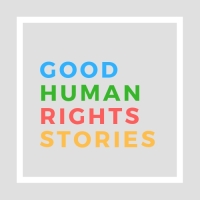Norway

Interrogation in the Norwegian Police
Human rights and the rule of law are fundamental for all states. It is essential that states also ensure that human rights are respected by the police in their daily work and in investigating crime.
Wrongful convictions and the entailing wrongful sentences represent fundamental human rights’ violations by states. Unfortunately, one can find too many examples throughout history where inadequate or poor police work has led to wrongful convictions. A fair and just investigation is the stepping stone to secure a fair and due process in the end. False evidence presented by investigators in order to get a confession is not acceptable.
In Norway, cases of wrongful convictions have resulted in an increased focus on the police’s interrogating and questioning techniques. In order to avoid wrongful convictions, it is vital to ensure questioning methods that are based on the presumption of innocence and a neutral investigation. When these basic human rights principles are not followed, it is not only detrimental for the individual’s destiny but it is also a violation of the individual’s rights. Over time, the state’s violation of human rights poses a serious threat to the population’s confidence in the police and the investigating authorities.
A method evolved in Norway for questioning in criminal cases provides investigators with the necessary knowledge and competence in how to avoid leading questions and biased opinions. This includes open-ended questions without a clear direction. Such questions make it easier to verify the information obtained from the questioning session with other evidence in the case. It is Norway’s experience that this technique has revealed many «false» confessions from suspects. Almost two decades with the Norwegian method have also proven that the quality of the statements is enhanced. This gives a higher value of an interview report since it provides more verifiable information.
The fact that also the prosecutors are trained with the same skillset as the investigators in the police, results in an extra safety net. This way, if wrongful concessions are not disclosed in the preliminary phase of the investigation, they can also be disclosed during the trial.
Many other countries use the same method in their national systems. Norway is currently working with the United Nations’s Secretariat to implement this questioning technique in the United Nations Strategic Guidance Framework that is used for capacity building of national police services in different United Nations’ Peacekeeping Operations.”
